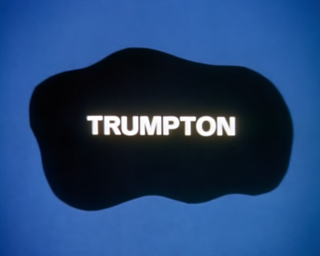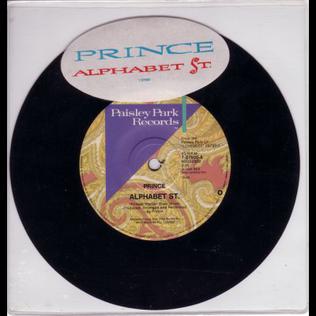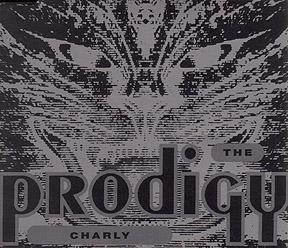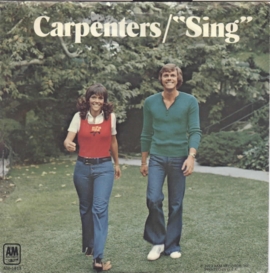Related Research Articles
Breakbeat hardcore is a music genre that spawned from the UK rave scene during the early 1990s. It combines four-on-the-floor rhythms with breakbeats usually sampled from hip hop. In addition to the inclusion of breakbeats, the genre also features shuffled drum machine patterns, hoover, and other noises originating from new beat and Belgian techno, sounds from acid house and bleep techno, and often upbeat house piano riffs and vocals.

Trumpton is a British stop-motion children's television series from the producers of Camberwick Green. First shown on the BBC from January to March 1967, it was the second series in the Trumptonshire trilogy, which comprised Camberwick Green, Trumpton and Chigley. Like the other two series, Trumpton continued to be repeated well into the 1980s as a part of the BBC's children's schedules.

Whodini is an American hip hop group that was formed in 1982. The Brooklyn, New York–based trio consisted of vocalist and main lyricist Jalil Hutchins; co-vocalist John Fletcher, a.k.a. Ecstasy ; and turntable artist DJ Drew Carter, a.k.a. Grandmaster Dee.

Yellow Magic Orchestra is the first official studio album by Japanese electronic music band Yellow Magic Orchestra, who were previously known as the Yellow Magic Band. Originally released by Alfa Records, in Japan in 1978, the album was released by A&M Records in Europe and the United States and Canada in early 1979, with the US version featuring new cover art but without the closing track of "Acrobat". Both versions would later be re-issued in 2003 as a double-disc format, with the American version as the first disc.

"Alphabet St." is a song from American musician Prince's tenth album, Lovesexy (1988). It was the first single from that album and the album's only top 10 single, reaching the top 10 in both the UK and US. Initially written as an acoustic blues song, the song's final version includes a rap by Cat Glover and is full of samples. "Alphabet St." generally echoes themes from the rest of Lovesexy.

"Wishing on a Star" is a ballad first recorded by American soul and R&B group Rose Royce. It was written by former Undisputed Truth member Billie Rae Calvin, and produced by Norman Whitfield. The song was originally offered to Barbra Streisand for an album project but she declined. It was first released as a single by Rose Royce in 1977 and has since been recorded by numerous acts including the Cover Girls in 1992, Jay-Z in 1998, Beyonce in 2005, and Seal in 2011. 21 Savage used a sample of the original 1977 version for his hit All of Me, which was released on his 2024 album American Dream, and used earlier in the trailer for his debut film, American Dream: The 21 Savage Story

"Charly" is the debut single released by the British electronic act the Prodigy, later included on their debut album, Experience (1992), although the version featured on the album is the significantly different "Trip into Drum & Bass" remix.

"Sing" is a 1971 song written by Joe Raposo for the children's television show Sesame Street as its signature song. In 1973, it gained popularity when performed by the Carpenters, a number 3 hit on the Billboard Hot 100.

Mark Summers is the English CEO, sound engineer and music producer of Scorccio, a music production company founded in the UK in 1996. A London DJ since 1979, he is a guest lecturer and masterclass presenter on sample replay production, sound engineering, DJ culture, sampling and the music industry. His productions have been featured on hits for Nicki Minaj, Diplo, Sam Smith, the Prodigy, Pitbull, Fatboy Slim, David Penn, Jess Glynne, Disclosure, Steve Aoki, CamelPhat, Swedish House Mafia, the Shapeshifters and many other notable music artists. He is related to Herbie Flowers, one of the UK's best-known session bass players.
Drum and bass is an electronic music genre that originated in the UK rave scene having developed from breakbeat hardcore. The genre would go on to become one of the most popular genres of electronic dance music, becoming international and spawning multiple different derivatives and subgenres.

Thornden School is a secondary school with academy status in Chandlers Ford, Hampshire. It is an 11-16, mixed specialist Arts College with Science as the second specialism. There are 1400 pupils on roll and 11 tutor groups of around 30 pupils in each tutor group, to form year groups of around 300 people.

"Bodyrock" is a song by American electronica musician Moby. It was released as the third single from his fifth studio album Play on July 12, 1999. Heavily inspired by hip hop music, the song incorporates vocal samples from "Love Rap" by Spoonie Gee and the Treacherous Three. The single peaked at number 38 on the UK Singles Chart.

"Sesame's Treet" is a 1992 single by the English rave group Smart E's. It is a remix of "Can You Tell Me How to Get to Sesame Street?", with the song's title being a pun on "Sesame Street". The song reached No. 2 on the UK Singles Chart in July 1992 and peaked within the top 10 in Australia, Ireland, and New Zealand. In the United States, it reached No. 60 on the Billboard Hot 100 chart and topped the Billboard Maxi-Singles Sales ranking.
Shaft was an English electronic music group, scoring a top 10 hit on the UK Singles Chart in December 1991 with "Roobarb & Custard". It featured recreated vocal samples from the vintage children's television cartoon Roobarb, as well as a variety of sound effects. The main contributors were the British record producers Mark Pritchard and Adrian Hughes.

The Prodigy are an English electronic dance music band formed in Braintree, Essex, in 1990 by producer, keyboardist, and songwriter Liam Howlett. The original line-up also featured dancer and vocalist Keith Flint, dancer and live keyboardist Leeroy Thornhill, dancer Sharky, and MC and vocalist Maxim. They are pioneers of the breakbeat-influenced genre big beat, and describe their style as electronic punk.

"Playing with Knives" is a song by British electronic dance music group Bizarre Inc. It was their second single released through Vinyl Solution, as well as their second single to be written and produced as a trio. It is also the first single from their debut full-length album, Energique (1992). The song originally reached number 43 in the UK Singles Chart in March 1991. It was re-released later the same year and peaked at number four in the UK charts. In 1999, the song was released for a third time, charting at a peak of number 30.
Urban Hype were an English breakbeat hardcore group. The group was formed in 1988, consisting of Bob Dibden and Mark Lewis. They are best known for their toytown techno single, "A Trip to Trumpton", which peaked at No. 6 in the UK Singles Chart in July 1992. They had two other minor UK chart entries, and briefly saw their second album Conspiracy to Dance released in the United States through Radikal Records.
Toytown techno is an underground subgenre of techno that emerged in the early 1990s, characterized by merging techno, jungle, or breakbeat hardcore with samples from children's television series or public information films.

Rave 92 is a DJ mixed compilation album compiled by Mark Arthurworrey and released on Cookie Jar Records, containing popular rave singles that had become popular in the United Kingdom in 1992. The compilation, the fifth and final rave compilation compiled by Arthurworrey and released on the label, aims to collect some of the year's biggest rave hits, although, as has been pointed out, Rave 92 also intends to "bridge across the gap between chart rave and the more obscure hardcore tracks." Released in November 1992, Rave 92 was well-received and a commercial success, reaching number 3 on the UK Compilation Chart. Several latter-day electronic producers, including Phaeleh, have cited hearing Rave 92 for the first time as the point they became interested in electronic music.
References
- ↑ Rifkind, Hugo (14 January 2008). "Roundabout way to a magical following". The Times . Retrieved 30 June 2016.[ dead link ]
- 1 2 "Urban Hype - A Trip To Trumpton (Vinyl)". Discogs.com. Retrieved 30 June 2016.
- ↑ "Toytown Techno". Oxford Reference . Retrieved 30 June 2016.
- ↑ "The Irish Charts - All there is to know". Archived from the original on 21 July 2011. Retrieved 2009-12-02.
- ↑ "Official Singles Chart Top 100". Official Charts Company. Retrieved 12 July 1992.